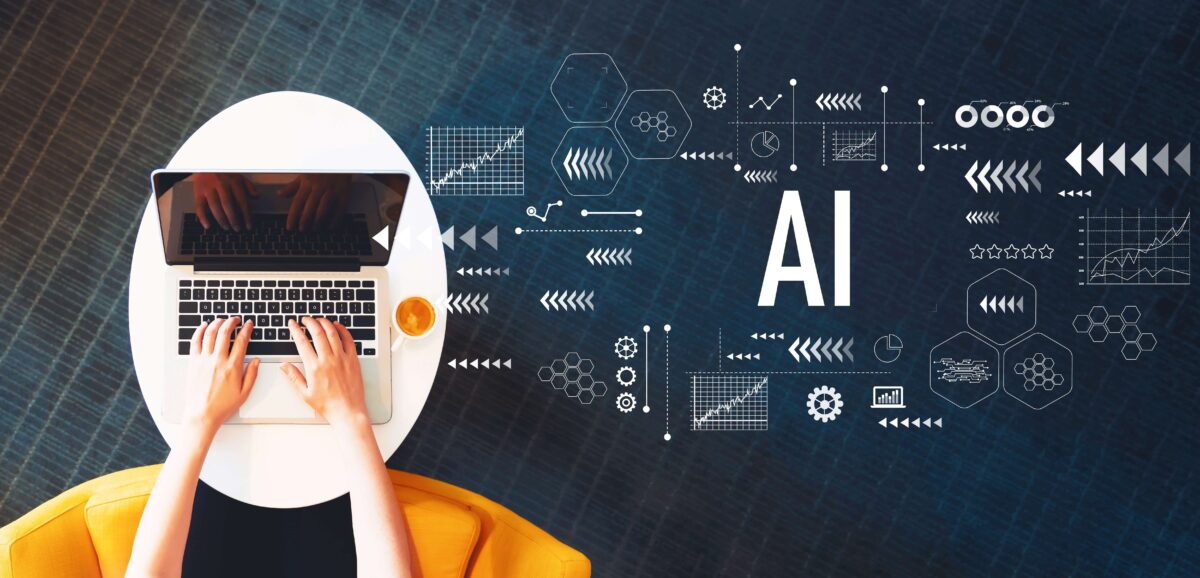By: Riya Ghotra, a Mason student majoring in Computer Science, an aspiring developer, and a lifelong learner
“Compassionate AI drives the machines to cry for those who are in pain and suffering. It drives the machine to find the shortest path to minimize the pain and suffering of others.” ― Amit Ray, Compassionate Artificial Intelligence
Stress is an inevitable part of life, affecting people across all personal and professional circumstances. While traditional stress management techniques like meditation, exercise, and therapy remain effective, artificial intelligence (AI) is emerging as a powerful tool to help people cope with stress in new and personalized ways. Stress management can become more accessible, efficient, and effective for everyone by leveraging AI’s ability to analyze data, identify patterns, and provide tailored recommendations. Here is why using AI can be a powerful way to manage stress, and how you can use AI for stress management to enjoy more well-being.
Research on AI and Stress Management
Recent research has demonstrated the potential of AI-assisted interventions in reducing stress and burnout, especially in high-pressure professions.
The recent study “AI-Assisted Tailored Intervention for Nurse Burnout: A Three-Group Randomized Controlled Trial” focused on nurses working in high-stress environments and explored the effectiveness of AI-driven programs in mitigating burnout. The study, involving 120 nurses, implemented an AI-assisted tailored intervention – including mindfulness meditation, acceptance commitment therapy, storytelling and reflective writing, and laughter therapy. The results were compelling: nurses in the AI-tailored intervention group experienced significant reductions in client-related and personal burnout compared to those in the control groups. The AI-driven programs were personalized based on participants’ job stress levels, coping strategies, and burnout dimensions, making them more effective than generic stress management resources. These findings suggest that AI can play a crucial role in delivering targeted stress management strategies that cater to individual needs – not only for nurses, but also for professionals in many other fields who face high-pressure environments.
Another recent research study, “Artificial Intelligence in Mental Health: Innovations Brought by Artificial Intelligence in Stress Detection and Interventions of Building Resilience”, found that AI: makes it possible to detect stress-related issues early and monitor those issues well, empowers people to develop personalized resilience training, and can transform the entire field of mental health care through personalized screening and interventions targeted to people’s individual needs.
How AI Can Help with Stress Management at Work
AI-driven solutions can be applied in workplaces across industries to help professionals manage stress more effectively. Here are some ways AI is being used for stress management at work:
- Personalized meditation and relaxation: Apps like Headspace and Calm use AI algorithms to customize meditation and relaxation techniques based on a user’s stress patterns and engagement history.
- AI for productivity and organization: AI-powered tools like Notion or Microsoft Copilot help employees stay organized, manage tasks efficiently, and prioritize work to reduce stress. AI-driven scheduling assistants, such as Motion or Clockwise, optimize calendars to prevent overload and ensure work-life balance.
- Workplace AI stress monitors: Some companies are adopting AI-driven analytics tools that assess employee workload, detect burnout risks, and provide proactive solutions such as recommending break times or workload adjustments.
- AI-integrated wearables: Smartwatches and biometric trackers like Fitbits incorporate AI to monitor stress levels through heart rate variability and suggest relaxation techniques when stress spikes.
A Practical AI-Based Stress Management Strategy
One simple yet effective AI-driven stress management technique is using AI-powered mindfulness applications. These tools analyze user behavior and preferences, providing personalized meditation sessions, stress-relief exercises, and cognitive behavioral therapy techniques.
Try this AI-assisted mindfulness practice:
- Download an AI-powered mindfulness app. Try an app such as Calm or Headspace.
- Set a goal. Choose a specific goal, like reducing anxiety, improving focus, or enhancing relaxation.
- Engage with the AI assistant. You can receive personalized meditation and breathing exercises based on your mood and stress levels.
- Track your progress. Many of these apps give you insights into your stress patterns and suggest adjustments over time.
- Incorporate daily usage. Just 5-10 minutes of guided AI-assisted meditation can significantly improve stress management.
Ethical Considerations and Responsible AI Use
While AI can be a valuable tool for stress management, it should not replace professional mental health care. Therapists, healthcare providers, and support groups remain essential for comprehensive well-being. AI can serve as an additional support system, offering you guidance and resources when needed, but you should seek professional help for serious mental health concerns.
For more insights on ethical AI use in mental health, check out Stevie Chancellor’s TED Talk on How to Create AI to Improve Mental Health.
In conclusion, AI is revolutionizing the way we manage stress, offering personalized, accessible, and data-driven solutions. Technology is making it easier than ever to take control of stress and enhance well-being, through AI-driven therapy, mindfulness applications, workplace stress monitoring, and more. AI-powered productivity tools can also help you stay organized, reduce workload stress, and improve efficiency – all of which can lead to a healthier work-life balance. However, it’s important to remember that AI should not replace therapists, healthcare providers, or support groups. AI should instead serve as an additional support system, complementing traditional stress management and mental health resources. As AI continues to advance, its role in stress management will only grow, helping you and people across diverse professions and lifestyles thrive together.
Additional Resources
- Well-being resources from Mason Recreation, including recommended mindfulness apps and websites
- The MyTherapyWorks.com article “6 Ways AI Can Help You Reduce Stress”
- The CNBC.com article “Here’s How AI-Backed Tools Can Help with Worker Stress and Mental Health”
- The article “Empowering Mental Health: The Intersection of AI and Student Mental Health” from the University of Michigan
Write one of these Thriving Together Series features! We’re looking for contributions on all topics related to well-being. Read other Thriving Together Series articles here and contact us at [email protected] for guidelines. Thank you for helping our Mason community thrive together online!






















